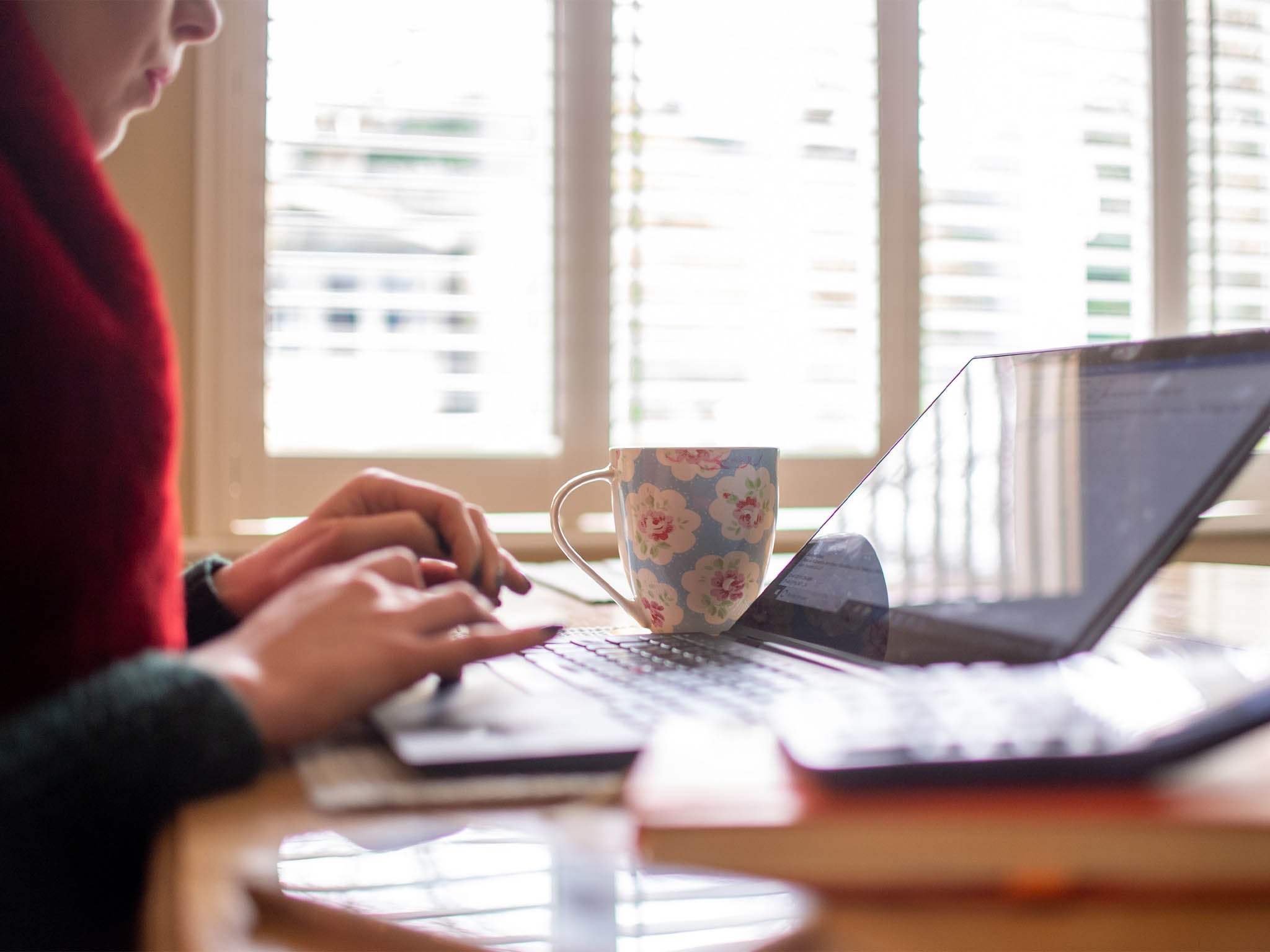Four in 10 office workers fear the effect of working from home on mental health, poll finds
41 per cent of those polled have felt anxious and isolated since working from home began

Four in 10 British office workers fear their mental health and wellbeing will suffer if they have to spend another six months working from home.
The study of 2,000 employees found 41 per cent already felt more anxious and isolated than ever before, after months cooped up at home.
Missing out on office conversation, feeling unable to communicate properly via video and calls, and finding it challenging to manage the new work-life balance were all factors which contributed to unease and happiness.
And, 42 per cent of those polled by Vision Direct have been struggling with their mental health more than usual in recent months. One-fifth also found their physical health had suffered as a result of rarely leaving the house.
New government restrictions mean those who can work from home, should.
But half of all workers said these new rules, while understandable, have made them feel more downbeat than ever before.
Dr Becky Spelman, a cognitive behavioural expert, said: “It is understandable that people are feeling low. We’re not just still dealing with a frightening pandemic, but also with the onset of the winter months.
“The world can seem a less friendly place when it is dark and cold outside. In the summer, long walks out of doors – with or without friends – were a real lifeline to most of us.
“The prospect of being restricted at home, without even the option of doing something fun outdoors, can be hard to bear.
"Some people love working from home and flourish, but for others, the social isolation can be extremely challenging.”
The study also found just one-third of workers were happy or excited to hear they could remain at home working for the foreseeable future.
Of the remainder, 22 per cent had not enjoyed being at home over recent months and 34 per cent said they needed a change of scenery.
As many as 43 per cent of adults feared they would feel increasingly gloomy as the winter months drew in, with one-fifth not looking forward to the prospect of bleak winter weather.
Being able to talk to people face-to-face was important for 47 per cent, who missed seeing others and having easy conversation.
Over the last few weeks, many were looking forward to embracing what appeared to be the “new normal” and returning to the office, albeit part time.
Going back to the workplace meant feeling part of a team again for 48 per cent, while 39 per cent said it made them feel more human.
Almost one in six workers said they had already started to sleep better at the thought of going to work, and 25 per cent felt it was already better for their mental health.
But now, 51 per cent felt they had nothing to look forward to.
Dr Spelman added: “In terms of regulating your mood while continuing to work from home it’s all about balance. Staying at home means that people have less variety in their lives and ways that would have automatically boosted your moods before.
"For instance being in the office with colleagues, going for work drinks, participating in work-related recreational activities and just moving about while commuting are no longer possible for many people so we have to be far more creative in our approach and more conscious about scheduling things to ensure we obtain a work/life balance that keeps us feeling happy.”
However, of those polled via OnePoll, 58 per cent did try to find ways to cope with working from home, in a bid to keep spirits up.
This included a walk before work (41 per cent), small breaks away from the desk to make tea or stretch (54 per cent) or turning on the TV in the background (24 per cent).
Christine North, human resources manager at Vision Direct, said “Understandably, for many, the novelty of remote working is starting to wear off.
She added: “With the recent implementation of new restrictions, a sudden shift in season and plans to return to office life completely on hold, taking care of your mental and physical wellbeing is now more important than ever.”
Join our commenting forum
Join thought-provoking conversations, follow other Independent readers and see their replies
Comments







Bookmark popover
Removed from bookmarks